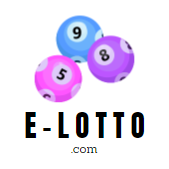EU Official Lotteries
National lotteries have a long and storied history within the European Union, tracing back centuries to a time when they served as crucial mechanisms for funding public projects and communal initiatives. Today, these lotteries are not only entrenched in the cultural fabric of Europe but also continue to serve important socio-economic functions. They promise both the thrill of potential winnings and the tangible benefits of community development.
Historical Origins
The concept of the lottery has been present in Europe since the Middle Ages. The earliest recorded instance of a lottery in Europe occurred in 1445 in the Belgian city of Bruges, where funds were raised to build city fortifications. The success of such early lotteries laid the groundwork for their spread across the continent.
In the 16th century, lotteries became increasingly popular, with notable examples such as the first official lottery established in England in 1569. This lottery was authorized by Queen Elizabeth I and aimed to raise funds for the repair of harbors and other public works. Similarly, in the Netherlands, the Staatsloterij was founded in 1726 and remains the oldest running lottery in the world. These early lotteries were vital in financing state needs without imposing additional taxes on the populace.
Evolution and Modern-Day Lotteries
As European nations evolved, so too did their national lotteries. Today, almost every country in the EU has its own national lottery, which operates under strict regulations to ensure fairness and transparency. These lotteries have adapted to modern times, embracing technology to offer online ticket purchases and instant win games, broadening their accessibility and appeal.
National lotteries in the EU are renowned for their significant jackpots, such as those seen in games like EuroMillions and EuroJackpot. EuroMillions, launched in 2004, is a transnational lottery that operates across nine countries and regularly offers massive prizes that capture the imagination of players across the continent. EuroJackpot, established in 2012, similarly unites multiple European countries in a common draw, with substantial jackpots and a wide player base.
Socio-Economic Impact
The promise of national lotteries in the EU extends far beyond the allure of winning large sums of money. The revenue generated from ticket sales is often earmarked for various public services and social initiatives. This model of voluntary taxation allows governments to fund education, healthcare, sports, culture, and environmental projects without burdening taxpayers.
For example, the UK’s National Lottery, established in 1994, has raised billions of pounds for good causes, funding everything from Olympic sports programs to heritage preservation and community arts projects. Similarly, Spain’s Lotería Nacional has a long tradition of supporting social welfare programs, including those aimed at helping the elderly and disabled.
The Promise of Community Enhancement
National lotteries in the EU are fundamentally rooted in the promise of community enhancement. By directing lottery proceeds towards public projects and social programs, these lotteries help foster a sense of communal investment and shared benefit. They provide essential funding for initiatives that might otherwise struggle to find financial support, enriching the cultural and social landscape of their respective countries.
Moreover, the transparency and regulation of these lotteries ensure that funds are used effectively and ethically, reinforcing public trust in the system. This aspect of lotteries not only boosts their popularity but also underscores their role as responsible and beneficial entities within society.
The history and promise of national lotteries in the EU highlight their enduring appeal and vital contribution to society. From their medieval origins to their present-day operations, lotteries have evolved to become significant sources of funding for public goods and services. They offer the excitement of potential riches while ensuring that even those who do not win contribute to the betterment of their communities. This dual promise of personal and communal benefit cements the position of national lotteries as cherished institutions within the European Union.

